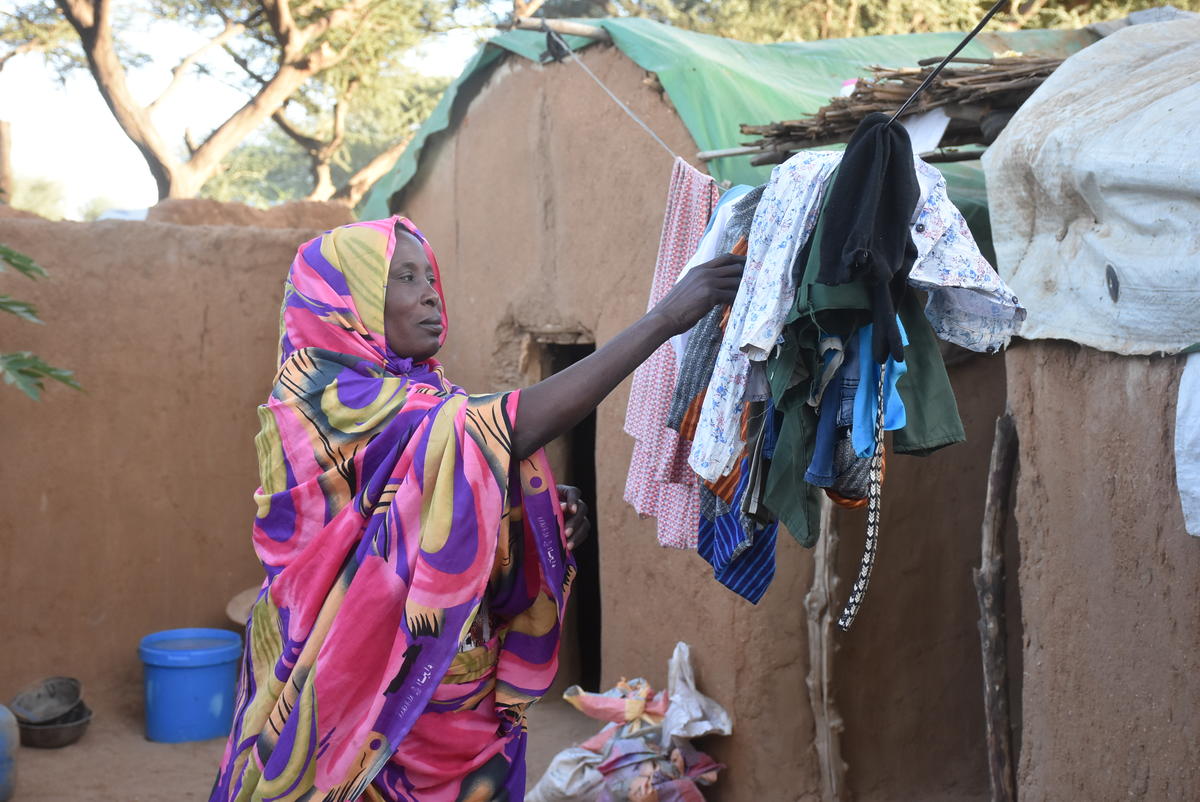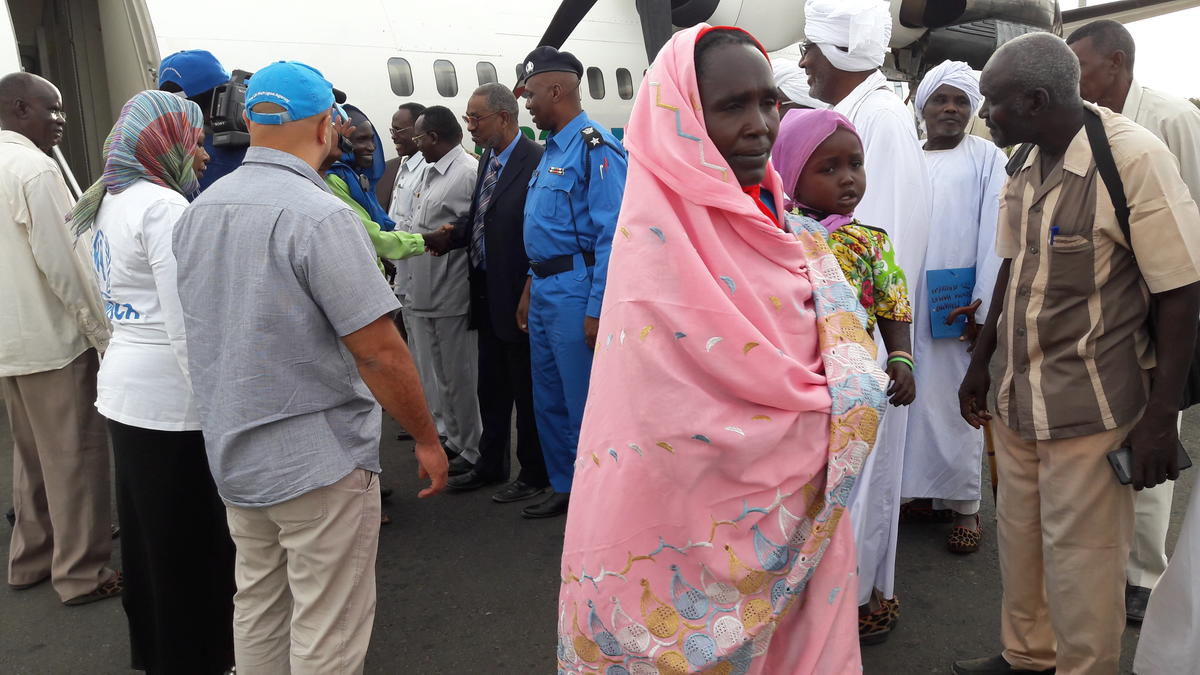Chad/Sudan: Director of Operations visits ahead of increased UNHCR Darfur presence
Chad/Sudan: Director of Operations visits ahead of increased UNHCR Darfur presence
In eastern Chad this week, heavy seasonal rains in the Adré area brought road transport along the main Abéché-Adré road to a grinding halt for two days, but the impact on deliveries of relief supplies to Breidjing and Farchana refugee camps has been minimal. On Monday, before the road was cut off by rushing water, eight trucks delivered some 1,600 badly needed tents to Breidjing camp. However, a water tanker en route to the camp was delayed by impassable roads and only managed to continue its trip on Wednesday. The tanker was to join two tankers already on site to ferry water from the wells to the bladders for distribution.
In a major improvement to living conditions, UNHCR has drastically increased the delivery of water to refugees in Breidjing from 1.7 litres per refugee per day to 12 litres per person per day. Water supplies at the site have been badly strained by the ongoing arrivals every day of some 200 refugees making their own way to the camp. UNHCR has been able to deliver more purified water in the camp by protecting existing wells and chlorinating the water before pumping it to the bladders. The number of bladders has been increased, as have the faucets connected to tap stands where refugees get their water. Increasing clean drinking water for the refugees is a top priority to help prevent cholera and other illnesses.
Meanwhile, work is continuing at a fast pace at Treguine and Mader camps which are expected to open in about three weeks. The two sites were chosen after satellite studies indicated potential water resources in the area. Deep wells are currently being dug in Treguine, which is scheduled to receive refugees currently at the border and about 10,000 from the overcrowded Breidjing camp. Mader will receive about 10,000 refugees from the spontaneous camp at AmNabak, which is badly lacking in water resources, and also some refugees from the border. UNHCR is currently carrying out a new registration at AmNabak to resolve the widely varying estimates of the population there. To date, 8,000 refugees have been registered.
More than 144,000 refugees are now integrated into our nine camps inside Chad, while an estimated 21,000 more have come on their own to sites away from the Sudan-Chad border. Around 22,000 refugees remain at the border, but some 9,000 are expected to move to the new camps when they open. The rest are opting to stay at the border near family and friends in the villages.
UNHCR's Director of Operations for the Sudan Situation and Chad Emergency, Jean-Marie Fakhouri, is in Chad today after a brief stop in Darfur. Mr Fakhouri plans to hold discussions with the Chadian government and other agencies in the capital, N'Djamena. He will then return to eastern Chad and visit refugee camps. Mr Fakhouri visited Djabal camp in eastern Chad yesterday before arriving in the capital. Early next week he will return to West Darfur and South Darfur to see the situation on the ground. Mr. Fakhouri is also laying the groundwork for a beefed-up UNHCR presence in Darfur. Over the next week, UNHCR is sending a 10-person emergency team for Darfur. The first team members are expected to arrive in Darfur early next week to join our existing contingent of six international staff in El Geneina and Nyala. The team includes an emergency team leader, a senior field co-ordinator, two protection officers, two community service officers, a field officer, a programme officer, an administration officer and a field safety advisor.








